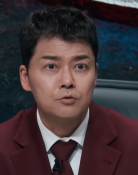[Editorial] Need to lay foundation for gifted education program
[Editorial] Need to lay foundation for gifted education program
Posted January. 15, 2001 20:09,
As the nations of the world strive to usher in the knowledge-based society of the 21st century, the roles of elite groups have become more important than ever before. One nation's international competitiveness hinges on how much talented manpower is amassed in certain specific sectors.
The enforcement decree of the Talent Education Promotion Law, provided by the Education Ministry, bears significance in that it lays out the direction for the nation's education system for the gifted. The measures provide among other things that the existing 16 science high schools across the country will be converted into schools for gifted middle and high school students from the year 2002. Their graduates will be given preferential treatment in considering admissions to colleges and universities. Also stipulated is the establishment of scholarship funds for primary schools operating talent courses, as well as for middle and high schools with the same types of programs.
It is generally agreed that Korea does not have an adequate system for educating the gifted. Such a system is not meant to make talented students out of mediocre ones but rather to ensure that talented students do not become mediocre ones. In Korea, programs for the gifted have been administered in the opposition direction. Against this backdrop, the education ministry's plan deserves praise for presenting some concrete programs to identify and foster the growth of gifted students.
However, in order to ensure the plan's success, the Education Ministry needs to make adequate preparations. First of all, systematic and specialized management systems must be put into place. Most important is the process leading from the discovery of the talented children to the full demonstration of their talents as adults.
In order for graduates of schools for the gifted to consistently develop their abilities, similar programs ought to be operated at local colleges or they should be helped to study abroad.
Science, foreign language and other special high schools should be obliged to work out new educational goals to supplant their current aim of helping students prepare for the college entrance examinations.
Also important is to enhance quality of teachers at special high schools by employing specialists with master's or doctorate degrees. As for the selection of students for these special schools, many educators share the view that not only their IQ (intelligence quotient) but also other factors must be taken into account, such as scholastic aptitude, creative thinking ability, artistic talent and enthusiasm for research.
Meanwhile, it is worrisome that the proposed gifted student programs might touch off a frenzy among students and parents to sign up for extra-curricular tutoring, which is already rampant in our society. Accordingly, appropriate measures or systems are required to prevent such an outcome.
In the case of classes for the gifted in primary and middle schools, precautions are necessary to curb the negative impact of their implementation, such as unfair treatment of other students. After all, it should be remembered that grooming gifted young people is one of the nation's most important tasks if it is to hold its own on the fiercely competitive international stage.







